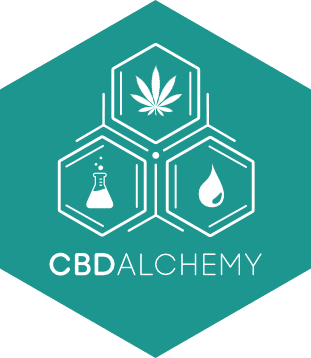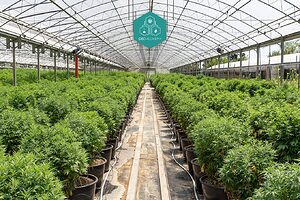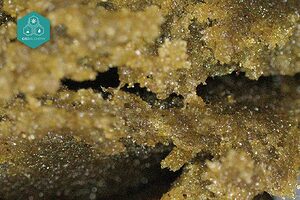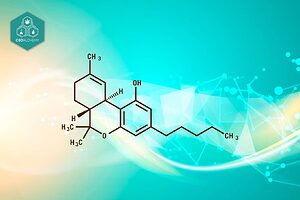- Understanding CBD and Its Effects
- The Legal Landscape of CBD in the United States
- Potential Benefits of CBD
- Common CBD Side Effects and Their Prevalence
- Factors Influencing CBD Side Effects
- CBD Side Effects in Treating Specific Medical Conditions
- CBD Use in Special Populations
- CBD Drug Interactions and Safety Precautions
- Managing and Mitigating CBD Side Effects
- CBD Products, Research, and Future Perspectives
- Comparing side effects of various CBD administration methods
- The entourage effect: Potential benefits and risks of whole-plant extracts
- Ensuring CBD Product Safety and Quality
- Dosage and Administration: Minimizing CBD Side Effects
- Current Research and Future Developments in CBD Safety
- CBD in the Context of Integrative Medicine
- Conclusion: Balancing the Benefits and Risks of CBD Use
- Frequently Asked Questions About CBD Side Effects
Understanding CBD and Its Effects
What is CBD and How Does It Work?
Cannabidiol, commonly known as CBD, is a naturally occurring compound found in the Cannabis sativa plant. Unlike its more famous cousin, tetrahydrocannabinol (THC), CBD does not produce psychoactive effects or the “high” associated with marijuana use. This non-intoxicating property has made CBD an increasingly popular choice for those seeking potential health benefits without the mind-altering effects of cannabis. Additionally, as a cannabis cannabinoid, CBD exemplifies the therapeutic potentials of cannabinoids without causing intoxication.
Definition and origin of CBD
CBD is one of over 100 cannabinoids identified in the cannabis plant. It is typically extracted from hemp, a variety of Cannabis sativa that contains high levels of CBD and low levels of THC (less than 0.3% by dry weight). The extraction process involves isolating CBD from the plant material, often using methods such as CO2 extraction or solvent-based extraction.
The endocannabinoid system and CBD’s interaction
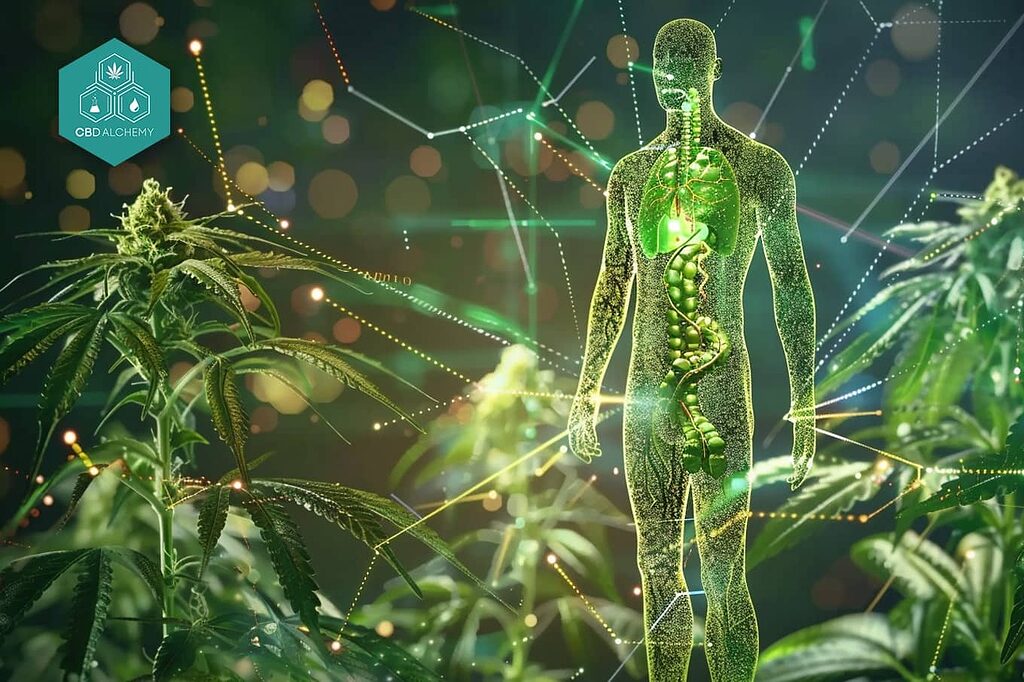
To understand how CBD works in the body, it’s essential to first grasp the concept of the endocannabinoid system (ECS). The ECS is a complex cell-signaling system discovered in the early 1990s that plays a crucial role in regulating various physiological processes, including mood, sleep, appetite, and pain sensation.The ECS consists of three main components:
- Endocannabinoids: Naturally produced cannabinoids in the body
- Cannabinoid receptors: Primarily CB1 and CB2 receptors found throughout the body
- Enzymes: Responsible for breaking down endocannabinoids after they’ve carried out their function
CBD interacts with the ECS in a unique way. Unlike THC, which binds directly to CB1 and CB2 receptors, CBD does not bind strongly to these receptors. Instead, it appears to work by:
- Inhibiting the breakdown of endocannabinoids, allowing them to have a more prolonged effect on the body
- Binding to other receptors, such as serotonin receptors, which may contribute to its potential anti-anxiety and antidepressant effects
- Modulating the activity of other non-cannabinoid receptors and ion channels
This complex interaction with the ECS and other bodily systems contributes to CBD’s wide range of potential effects and therapeutic applications.
Differences between CBD, THC, and other cannabinoids
While CBD and THC are the most well-known cannabinoids, they are just two of many compounds found in cannabis. Here’s a brief overview of how CBD compares to THC and other cannabinoids:
- CBD vs. THC:
- Psychoactivity: CBD is non-psychoactive, while THC produces the “high” associated with marijuana use
- Receptor binding: THC binds directly to CB1 receptors, while CBD has a more indirect effect on the ECS
- Legal status: CBD derived from hemp is federally legal in the US, while THC remains a controlled substance
- CBD vs. CBG (Cannabigerol):
- CBG is often called the “mother cannabinoid” as it’s a precursor to other cannabinoids
- Both CBD and CBG are non-psychoactive and show potential therapeutic properties
- CBD vs. CBN (Cannabinol):
- CBN is a mildly psychoactive compound formed when THC ages
- CBN is often associated with sedative effects, while CBD’s effects on sleep are less direct
- CBD vs. CBC (Cannabichromene):
- CBC is non-psychoactive and shares some potential therapeutic properties with CBD
- CBC may have more potent anti-inflammatory effects in some studies
Understanding these differences is crucial for consumers and healthcare providers when considering the use of cannabis-derived products for various purposes.
The Legal Landscape of CBD in the United States
The legal status of CBD in the United States has evolved significantly in recent years, but it remains a complex and sometimes confusing topic. To understand the current legal landscape, it’s essential to examine federal regulations, state laws, and the role of regulatory agencies.
Federal regulations and the 2018 Farm Bill
The passage of the Agriculture Improvement Act of 2018, commonly known as the 2018 Farm Bill, marked a significant turning point for CBD legality in the United States. This legislation effectively legalized hemp and hemp-derived products at the federal level, provided they contain no more than 0.3% THC on a dry weight basis.Key points of the 2018 Farm Bill regarding CBD:
- Removed hemp from the Controlled Substances Act’s definition of marijuana
- Allowed for the cultivation, processing, and sale of hemp and hemp-derived products
- Transferred regulatory authority over hemp cultivation from the Drug Enforcement Administration (DEA) to the Department of Agriculture (USDA)
However, it’s important to note that the Farm Bill did not legalize all CBD products unconditionally. The Food and Drug Administration (FDA) retains authority over the regulation of products containing cannabis or cannabis-derived compounds, including CBD.
State-by-state variations in CBD laws
While the 2018 Farm Bill provided a federal framework for hemp-derived CBD, individual states have the authority to regulate CBD within their borders. This has led to a patchwork of laws and regulations across the country. Some states have fully embraced CBD, while others have imposed restrictions or outright bans.General categories of state CBD laws:
- Fully legal: States that allow the sale and use of CBD products with few restrictions
- Legal with restrictions: States that permit CBD use but impose limitations on THC content, product types, or sales channels
- Medical use only: States that allow CBD use for specific medical conditions
- Prohibited: A small number of states that have banned or severely restricted CBD use
It’s crucial for consumers and businesses to be aware of the specific laws in their state, as they can significantly impact the availability and legality of CBD products.
FDA stance on CBD products and future regulatory outlook
The FDA’s position on CBD has been a source of both guidance and confusion for the industry. While the agency recognizes the potential therapeutic value of CBD, it has also expressed concerns about its safety and the proliferation of unapproved CBD products in the market. The growing interest in medical cannabis as a treatment option is highlighted by the FDA’s approval of specific cannabis-derived medications like Epidiolex. Key points of the FDA’s current stance on CBD:
- CBD cannot be marketed as a dietary supplement or added to food products under current regulations
- The agency has approved one CBD-based drug, Epidiolex, for the treatment of certain seizure disorders
- The FDA has issued warning letters to companies making unsubstantiated health claims about CBD products
- The agency is actively working to develop a regulatory framework for CBD products
The future regulatory outlook for CBD remains uncertain, but there is growing pressure on the FDA to establish clear guidelines for CBD products. Potential developments may include:
- Creation of a legal pathway for CBD in dietary supplements and food products
- Establishment of quality standards and testing requirements for CBD products
- Development of specific labeling and marketing regulations for CBD
As the regulatory landscape continues to evolve, it’s essential for consumers and industry stakeholders to stay informed about the latest developments and comply with current regulations.
Potential Benefits of CBD
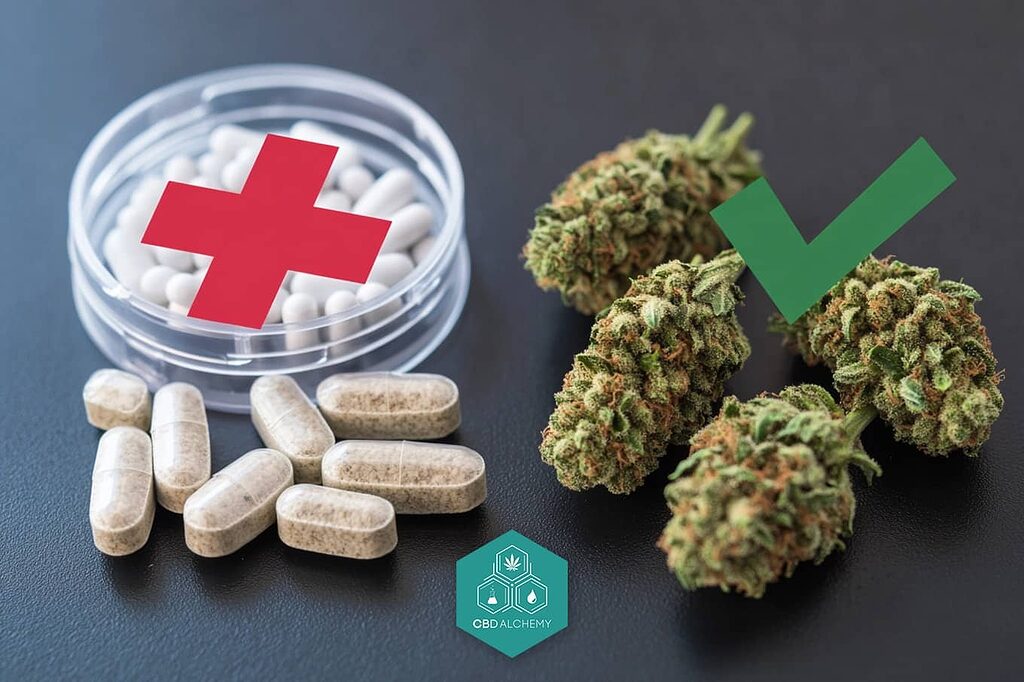
While research on CBD is still in its early stages, there is growing evidence to suggest that it may offer a range of potential health benefits. It’s important to note that many of these potential benefits require further study to be conclusively proven, and the FDA has not approved CBD for most medical uses.
FDA-approved uses of CBD
Currently, the FDA has approved only one CBD-based drug:Epidiolex: This oral solution containing purified CBD is approved for the treatment of seizures associated with two rare and severe forms of epilepsy, Lennox-Gastaut syndrome and Dravet syndrome, in patients two years of age and older. In 2020, the FDA expanded its approval to include seizures associated with tuberous sclerosis complex.
Promising areas of CBD research
While Epidiolex represents the only FDA-approved use of CBD, researchers are exploring its potential in various other areas. Studies on CBD effectiveness reveal that a significant percentage of users acknowledge its efficacy in relieving various symptoms, with statistical data supporting these claims:
- Anxiety and depression: Some studies suggest that CBD may have anxiolytic (anti-anxiety) and antidepressant effects, potentially offering a new avenue for treating mood disorders.
- Pain management: CBD’s anti-inflammatory properties may make it useful in managing chronic pain conditions, including arthritis and neuropathic pain.
- Sleep disorders: While the effects of CBD on sleep are complex, some research indicates it may help improve sleep quality and duration for some individuals.
- Neuroprotective properties: Preliminary studies suggest CBD may have neuroprotective effects, potentially benefiting conditions like Alzheimer’s disease and multiple sclerosis.
- Addiction treatment: Some research indicates that CBD may help reduce cravings and anxiety in individuals with substance use disorders.
- Skin conditions: Topical CBD applications are being studied for their potential in treating acne, psoriasis, and other skin disorders.
- Heart health: Early research suggests CBD may have cardiovascular benefits, including reducing blood pressure and improving heart health.
It’s important to emphasize that while these areas show promise, most require more extensive clinical trials to confirm CBD’s efficacy and safety for these uses.
Anecdotal evidence and public perception
In addition to scientific research, there is a wealth of anecdotal evidence from CBD users reporting benefits for a wide range of conditions. While anecdotal evidence should not be considered as reliable as controlled clinical studies, it has contributed significantly to the public perception of CBD as a potential wellness aid.Common anecdotal reports of CBD benefits include:
- Stress reduction and improved mood
- Better sleep quality
- Relief from minor aches and pains
- Improved focus and concentration
- Reduced inflammation and faster recovery from exercise
The growing popularity of CBD has led to increased public interest and demand for CBD products. However, it’s crucial to approach these anecdotal claims with caution and consult with healthcare professionals before using CBD for any medical purpose.
Common CBD Side Effects and Their Prevalence

While CBD is generally well-tolerated by most users, it can cause side effects in some individuals. Understanding these potential side effects is crucial for anyone considering CBD use. It’s important to note that the prevalence and severity of side effects can vary depending on factors such as dosage, method of administration, and individual physiology.
Mild side effects: Fatigue, changes in appetite, and gastrointestinal issues
- Fatigue: Some CBD users report feeling tired or experiencing a sense of drowsiness, especially when taking higher doses. This effect may be more pronounced when CBD is combined with other medications that cause drowsiness.
- Changes in appetite: CBD has been observed to affect appetite in some users. While some people report increased hunger, others may experience a decrease in appetite. These effects appear to be dose-dependent and can vary between individuals.
- Gastrointestinal issues: Digestive discomfort, including diarrhea and changes in bowel movements, has been reported by some CBD users. These effects are often mild and may be related to the oil-based nature of many CBD products.
Moderate side effects: Dry mouth, dizziness, and mood changes
- Dry mouth: Also known as “cottonmouth,” this side effect is relatively common among CBD users. It’s thought to be caused by the interaction of cannabinoids with salivary glands.
- Dizziness: Some users report feeling lightheaded or dizzy after taking CBD, particularly at higher doses. This effect may be related to CBD’s potential to lower blood pressure.
- Mood changes: While CBD is often used to improve mood, some users report experiencing irritability or other mood changes. These effects are typically mild and may be dose-dependent.
Serious side effects: Liver injury and potential long-term effects
- Liver injury: High doses of CBD have been associated with liver toxicity in some studies, particularly in animal models. While human studies are limited, the FDA has noted the potential for liver injury as a concern with CBD use, especially at high doses or when combined with other medications that affect liver function.
- Potential long-term effects: As CBD research is still relatively new, the long-term effects of prolonged CBD use are not yet fully understood. Some areas of concern include:
- Reproductive system effects: Some animal studies have suggested that CBD may affect male reproductive health, but human studies are lacking.
- Interactions with other medications: CBD can interact with various medications by affecting liver enzymes responsible for drug metabolism. This could potentially lead to increased side effects or reduced efficacy of certain drugs over time.
- Cumulative effects on the endocannabinoid system: The long-term impact of regular CBD use on the body’s endocannabinoid system is not yet clear and requires further study.
It’s important to note that serious side effects from CBD are relatively rare, and many of these concerns are based on high-dose studies or animal models. Most CBD users experience mild to moderate side effects, if any. However, the potential for more serious adverse effects underscores the importance of consulting with a healthcare professional before starting CBD use, especially for individuals with pre-existing health conditions or those taking other medications.
Factors Influencing CBD Side Effects
The occurrence and severity of CBD side effects can vary significantly from person to person. Several factors contribute to this variability, including individual physiology, dosage, method of administration, and product quality. Understanding these factors can help users and healthcare providers better manage and mitigate potential side effects.
Individual physiology and genetic factors
- Metabolism: The rate at which an individual metabolizes CBD can affect its potency and duration of effects. Genetic variations in liver enzymes, particularly in the cytochrome P450 system, can influence how quickly CBD is processed in the body.
- Body composition: Factors such as body weight, fat composition, and overall health status can impact how CBD is distributed and metabolized in the body. For example, CBD is lipophilic, meaning it can accumulate in fat tissues, potentially leading to different effects in individuals with varying body compositions.
- Endocannabinoid system sensitivity: The responsiveness of an individual’s endocannabinoid system to CBD can vary, potentially influencing both therapeutic effects and side effects.
- Pre-existing health conditions: Certain health conditions may make individuals more susceptible to specific CBD side effects. For instance, people with liver disease may be at higher risk for CBD-related liver toxicity.
- Age and gender: Some studies suggest that age and gender may influence CBD metabolism and effects, although more research is needed in this area.
Dosage and method of administration
- Dosage: The amount of CBD consumed is a critical factor in determining both efficacy and side effects. Higher doses are generally associated with a greater likelihood of side effects.
- Frequency of use: Regular, long-term use of CBD may have different effects compared to occasional use. Some side effects may diminish with continued use, while others could potentially develop over time.
- Method of administration:
- Oral ingestion (e.g., oils, capsules): This method typically results in slower onset but longer-lasting effects. It may be associated with more gastrointestinal side effects due to first-pass metabolism in the liver.
- Sublingual administration: Placing CBD oil under the tongue for absorption can lead to faster onset of effects and potentially fewer gastrointestinal side effects compared to oral ingestion.
- Inhalation (e.g., vaping): This method provides rapid onset but shorter duration of effects. It may carry additional risks related to lung irritation or damage.
- Topical application: CBD applied to the skin typically has localized effects with minimal systemic absorption, potentially reducing the risk of systemic side effects.
- Timing of administration: Taking CBD with or without food can affect its absorption and metabolism, potentially influencing both therapeutic effects and side effects.
Quality and purity of CBD products
- CBD concentration: The actual CBD content in products can vary significantly from what is stated on the label. Inaccurate labeling can lead to unintended underdosing or overdosing, affecting both efficacy and side effect risk.
- Presence of other cannabinoids: Full-spectrum CBD products contain other cannabinoids, including trace amounts of THC, which may contribute to different effects compared to CBD isolate products.
- Contaminants: Poor quality control in CBD production can lead to the presence of contaminants such as pesticides, heavy metals, or residual solvents. These contaminants may cause additional side effects unrelated to CBD itself.
- Additives and carrier oils: Some CBD products contain additional ingredients that may cause side effects or allergic reactions in some individuals.
- Third-party testing: Products that undergo third-party testing for potency and purity are more likely to provide consistent and safe results.
Understanding these factors can help users and healthcare providers make more informed decisions about CBD use. It’s important to start with low doses, choose high-quality products from reputable sources, and monitor for any adverse effects when beginning CBD use. Additionally, consulting with a healthcare professional is crucial, especially for individuals with pre-existing health conditions or those taking other medications.
CBD Side Effects in Treating Specific Medical Conditions
Epilepsy and seizure disorders: Efficacy and risks
CBD efficacy has shown significant promise in treating certain forms of epilepsy, particularly in children with rare and severe seizure disorders. The FDA-approved drug Epidiolex, a purified form of CBD, has demonstrated efficacy in reducing seizure frequency in patients with Lennox-Gastaut syndrome and Dravet syndrome. Common side effects reported in epilepsy treatment include:
- Drowsiness and fatigue
- Decreased appetite
- Diarrhea
- Elevated liver enzymes
In rare cases, more severe side effects such as liver injury have been observed, particularly when CBD is used at high doses or in combination with certain anti-epileptic drugs.
Anxiety, depression, and PTSD: Potential benefits and adverse effects
CBD may have anxiolytic and antidepressant properties, making it a potential treatment option for anxiety disorders, depression, and PTSD. Some studies have shown that CBD can reduce anxiety in social situations and may help alleviate symptoms of generalized anxiety disorder.However, the effects of CBD on mood disorders can be complex. While many users report reduced anxiety and improved mood, some individuals may experience:
- Mood changes or irritability
- Drowsiness
- Changes in appetite
CBD can interact with certain antidepressant medications, potentially altering their effectiveness or increasing the risk of side effects.
Chronic pain and inflammation: CBD’s impact and side effects
CBD’s anti-inflammatory properties have made it a popular option for managing chronic pain conditions such as arthritis and neuropathic pain. Some users report significant pain relief and improved quality of life with CBD use.Side effects related to CBD use for pain management may include:
- Dry mouth
- Dizziness
- Nausea
- Fatigue
These side effects are generally mild but can be more pronounced when CBD is combined with other pain medications.
Sleep disorders: How CBD affects sleep patterns and potential risks
CBD’s effects on sleep are complex and can vary depending on the dosage and individual factors. Some studies suggest that CBD may improve sleep quality and duration, particularly in individuals with anxiety or chronic pain that interferes with sleep.Potential effects include:
- Improved sleep at lower doses
- Increased wakefulness at higher doses
- Changes in sleep cycles
Side effects related to CBD use for sleep disorders may include daytime drowsiness, especially when combined with other sleep medications.
CBD Use in Special Populations
CBD effects and risks in children and adolescents
While CBD has shown promise in treating certain pediatric conditions, particularly epilepsy, its use in children and adolescents requires careful consideration. The developing brain may be more susceptible to both the potential benefits and risks of CBD.Concerns specific to CBD use in children include:
- Long-term effects on brain development
- Potential impact on hormonal development
- Increased risk of side effects due to smaller body size
Considerations for elderly CBD users
Older adults may benefit from CBD’s potential effects on chronic pain, sleep, and anxiety. However, they may also be more susceptible to certain side effects and drug interactions due to age-related changes in metabolism and the increased likelihood of taking multiple medications.Key considerations for elderly CBD users include:
- Increased sensitivity to side effects such as dizziness and drowsiness
- Higher risk of drug interactions due to polypharmacy
- Potential impact on blood pressure and heart rate
CBD use during pregnancy and breastfeeding
The use of CBD during pregnancy and breastfeeding is not recommended due to the lack of comprehensive safety data. CBD can cross the placental barrier and may be present in breast milk, potentially affecting fetal and infant development.Concerns about CBD use during pregnancy and breastfeeding include:
- Potential impact on fetal brain development
- Unknown effects on infant growth and development
- Possible contamination of CBD products with harmful substances
CBD Drug Interactions and Safety Precautions
How CBD affects drug metabolism
CBD can interact with various medications by affecting the cytochrome P450 enzyme system in the liver, which is responsible for metabolizing many drugs. CBD may inhibit or induce these enzymes, potentially altering the concentration of other medications in the bloodstream.This interaction can lead to two main effects:
- Increased drug levels: CBD may slow down the metabolism of certain drugs, leading to higher than intended blood concentrations and increased risk of side effects.
- Decreased drug levels: In some cases, CBD may speed up drug metabolism, potentially reducing the effectiveness of medications.
Common medications that may interact with CBD
CBD has the potential to interact with a wide range of medications, including:
- Antiepileptic drugs
- Blood thinners
- Antidepressants
- Heart medications
- Immunosuppressants
- Pain medications
- Statins
The importance of medical supervision when using CBD
Given the potential for drug interactions and side effects, medical supervision is essential when using CBD, especially for individuals with pre-existing health conditions or those taking other medications. A healthcare provider can:
- Assess the potential risks and benefits of CBD use
- Monitor for drug interactions and adjust medication dosages if necessary
- Help determine appropriate CBD dosing
- Provide guidance on choosing high-quality CBD products
Potential interactions with herbal supplements and over-the-counter medications
CBD can also interact with herbal supplements and over-the-counter medications. Some potential interactions include:
- St. John’s Wort: May increase CBD metabolism, potentially reducing its effectiveness
- Melatonin: Combining with CBD may enhance sedative effects
- NSAIDs: May increase the risk of gastrointestinal side effects
- Acetaminophen: CBD may increase the risk of liver toxicity when combined with high doses of acetaminophen
Managing and Mitigating CBD Side Effects
Strategies for reducing the risk of adverse effects
To minimize the risk of CBD side effects, consider the following strategies:
- Start with a low dose and gradually increase as needed
- Choose high-quality products from reputable sources
- Consider different methods of administration
- Be aware of potential drug interactions
- Monitor for side effects
- Adjust timing of CBD intake
- Stay hydrated
When to consult a healthcare professional about CBD use
It’s important to consult a healthcare professional before starting CBD, especially in the following situations:
- When taking prescription medications
- If you have pre-existing health conditions
- Before using CBD for a specific medical condition
- If you’re pregnant, breastfeeding, or planning to become pregnant
- When considering CBD use for children or elderly individuals
- If you experience unexpected or severe side effects
- When planning to undergo surgery or medical procedures
Monitoring and reporting CBD side effects
Proper monitoring and reporting of CBD side effects are crucial for ensuring safe use and contributing to the growing body of knowledge about CBD’s effects. Steps to take include:
- Keep a journal of CBD usage and effects
- Schedule regular check-ups with healthcare providers
- Be honest with healthcare providers about CBD use
- Report any serious side effects to appropriate authorities
- Consider participating in CBD research studies
By following these guidelines and working closely with healthcare providers, users can maximize the potential benefits of CBD while minimizing risks and side effects.
CBD Products, Research, and Future Perspectives
Types of CBD Products and Their Safety Profiles
Full-spectrum, broad-spectrum, and CBD isolate: Understanding the differences
CBD products come in three main types: full-spectrum, broad-spectrum, and CBD isolate.
Each has a unique composition and potential effects on the body.Full-spectrum CBD contains all the naturally occurring compounds found in the cannabis plant, including other cannabinoids, terpenes, and up to 0.3% THC. This type may offer enhanced therapeutic benefits due to the entourage effect, but it also carries a slight risk of THC exposure.Broad-spectrum CBD is similar to full-spectrum but undergoes additional processing to remove THC. It retains other beneficial compounds, potentially offering some entourage effect benefits without the risk of THC exposure.CBD isolate is the purest form, containing only CBD molecule. It’s THC-free and doesn’t provide entourage effect benefits, but it’s the best option for those who want to avoid all other cannabis compounds.
Comparing side effects of various CBD administration methods
Different CBD administration methods can lead to varying onset times, durations of effect, and potential side effects:
- Oils and tinctures (sublingual): Fast onset (15-30 minutes), moderate duration (4-6 hours). Potential side effects include dry mouth and temporary taste alteration.
- Edibles and capsules (oral): Slower onset (30-90 minutes), longer duration (6-8 hours). May cause more pronounced gastrointestinal side effects like nausea or diarrhea.
- Topicals: Localized effects, minimal systemic absorption. Side effects are typically limited to skin irritation in sensitive individuals.
- Vaping: Fastest onset (almost immediate), shortest duration (2-3 hours). Potential respiratory irritation and long-term lung health concerns.
- Transdermal patches: Slow, steady release over 24-48 hours. Skin irritation at application site is the primary concern.
The entourage effect: Potential benefits and risks of whole-plant extracts
The entourage effect theory suggests that the combination of cannabinoids, terpenes, and other compounds in cannabis work synergistically, potentially enhancing therapeutic effects. This could lead to improved efficacy at lower doses, potentially reducing side effects.However, whole-plant extracts also introduce more variables, making it challenging to predict individual responses and potential interactions. Some users may be more sensitive to certain compounds, increasing the risk of adverse effects.
Ensuring CBD Product Safety and Quality
Understanding CBD product labels and certificates of analysis
CBD product labels should clearly state:
- CBD content per serving
- Full ingredient list
- Type of CBD (full-spectrum, broad-spectrum, or isolate)
- Batch or lot number
- Manufacturer contact information
Certificates of Analysis (COAs) provide detailed information about the product’s composition, including:
- Cannabinoid profile
- Terpene profile (for full and broad-spectrum products)
- Contaminant testing results (pesticides, heavy metals, residual solvents)
- Microbial testing results
The importance of third-party testing
Third-party testing is crucial for ensuring product safety and quality. Independent laboratories provide unbiased analysis of CBD products, verifying their contents and safety. This helps protect consumers from mislabeled or contaminated products.Key aspects of third-party testing include:
- Potency verification
- Terpene analysis
- Residual solvent screening
- Pesticide screening
- Heavy metal analysis
- Microbial contamination testing
Red flags and warning signs of low-quality CBD products
Be wary of CBD products that:
- Lack third-party testing results or COAs
- Make exaggerated health claims
- Don’t clearly state CBD content
- Are significantly cheaper than comparable products
- Have inconsistent or vague labeling
- Come from companies with poor customer reviews or lack of transparency
Best practices for purchasing and using CBD safely
To ensure safe CBD use:
- Choose reputable brands with transparent practices
- Always check for third-party lab results
- Start with low doses and gradually increase
- Consult a healthcare professional, especially if you have existing health conditions or take medications
- Be aware of potential drug interactions
- Store CBD products properly to maintain their quality
- Monitor your body’s response and discontinue use if you experience adverse effects
Dosage and Administration: Minimizing CBD Side Effects
Finding the right CBD dosage for your needs
Determining the optimal CBD dosage is highly individual and depends on factors such as:
- Body weight
- Metabolism
- Desired effects
- Severity of the condition being treated
- CBD concentration in the product
General dosage guidelines suggest starting with 1-6 mg of CBD per 10 pounds of body weight. However, it’s essential to consult with a healthcare professional for personalized advice.
Start low and go slow: A guide to CBD titration
CBD titration involves gradually increasing the dose to find the optimal balance between therapeutic effects and minimal side effects. A typical titration process might look like:
- Start with a low dose (e.g., 5-10 mg) once daily
- Maintain this dose for 3-7 days, monitoring effects
- If needed, increase the dose by 5 mg
- Continue this process until desired effects are achieved or side effects occur
- If side effects occur, reduce to the previous well-tolerated dose
Factors affecting optimal CBD dosage
Several factors can influence the optimal CBD dosage:
- Individual physiology and endocannabinoid system
- Severity and type of symptoms being addressed
- Tolerance developed over time
- Interactions with other medications or supplements
- Method of administration
- Quality and concentration of the CBD product
Potential risks of CBD overconsumption
While CBD is generally well-tolerated, overconsumption can lead to:
- Increased severity of common side effects (fatigue, changes in appetite, diarrhea)
- Potential liver enzyme elevation
- Interactions with medications metabolized by cytochrome P450 enzymes
- Temporary drop in blood pressure
- Excessive drowsiness, potentially impairing driving or operating machinery
Current Research and Future Developments in CBD Safety
Overview of ongoing clinical trials on CBD
Numerous clinical trials are exploring CBD’s potential in various conditions:
- Anxiety disorders
- Pain management
- Epilepsy and seizure disorders
- Substance use disorders
- Neurodegenerative diseases
- Inflammatory conditions
These trials aim to establish optimal dosages, long-term safety profiles, and efficacy for specific indications.
Gaps in current CBD research and areas needing further study
Key areas requiring more research include:
- Long-term effects of chronic CBD use
- CBD’s impact on brain development in adolescents
- Potential hormonal effects
- Interactions with a broader range of medications
- Efficacy and safety in pregnant and breastfeeding women
- Comparative studies between different CBD formulations and administration methods
Emerging technologies in CBD production and administration
Advancements in CBD technology include:
- Nano-emulsification for improved bioavailability
- Controlled-release formulations for sustained effects
- Targeted delivery systems for specific health conditions
- Novel extraction methods for purer and more consistent products
- Biosynthesis of cannabinoids for more sustainable production
The role of the FDA and other regulatory bodies in shaping CBD’s future
The FDA and other regulatory agencies are working to:
- Establish clear regulatory frameworks for CBD products
- Develop standards for product quality and safety
- Evaluate health claims and enforce regulations against unsubstantiated marketing
- Encourage and support further research into CBD’s safety and efficacy
- Provide guidance on CBD use in food, supplements, and cosmetics
CBD in the Context of Integrative Medicine
Combining CBD with other natural remedies: Synergies and risks
CBD may be used alongside other natural remedies, potentially offering synergistic effects. However, this approach also carries risks:Potential synergies:
- CBD and omega-3 fatty acids for inflammation
- CBD and melatonin for sleep
- CBD and adaptogenic herbs for stress management
Risks:
- Increased likelihood of drug interactions
- Difficulty in determining the source of benefits or side effects
- Potential for amplified side effects
CBD as part of a holistic wellness approach
Incorporating CBD into a holistic wellness plan may involve:
- Combining CBD with stress-reduction techniques like meditation or yoga
- Using CBD alongside dietary changes for managing inflammation or pain
- Integrating CBD into exercise recovery routines
- Exploring CBD’s potential in supporting mental health alongside therapy
The importance of lifestyle factors in mitigating CBD side effects
Lifestyle factors can significantly impact CBD’s effects and potential side effects:
- Maintaining a balanced diet can support the endocannabinoid system
- Regular exercise may enhance CBD’s effects on mood and pain management
- Adequate sleep can help maximize CBD’s potential benefits
- Stress management techniques may complement CBD’s anxiolytic effects
- Avoiding alcohol and other substances that may interact with CBD
Conclusion: Balancing the Benefits and Risks of CBD Use
Summarizing key points on CBD safety
- CBD is generally well-tolerated but can cause side effects and interact with medications
- Product quality and third-party testing are crucial for safe CBD use
- Individual responses to CBD vary, necessitating a personalized approach to dosing
- More research is needed to fully understand CBD’s long-term effects and optimal use
Making informed decisions about CBD use
To make informed decisions about CBD use:
- Consult with healthcare professionals, especially if you have existing health conditions or take medications
- Choose high-quality products from reputable sources
- Start with low doses and titrate slowly
- Monitor your body’s response closely
- Stay informed about the latest research and regulatory developments
The future of CBD in healthcare and wellness
The future of CBD in healthcare and wellness looks promising but requires:
- Continued research to establish safety and efficacy for various conditions
- Development of standardized products and dosing guidelines
- Clear regulatory frameworks to ensure product quality and consumer safety
- Integration of CBD into mainstream healthcare practices
- Education for both healthcare providers and consumers about CBD’s potential benefits and risks
As our understanding of CBD grows, it has the potential to become a valuable tool in personalized medicine and holistic wellness approaches. However, responsible use, ongoing research, and regulatory oversight will be crucial in realizing this potential while minimizing risks.
Frequently Asked Questions About CBD Side Effects
- What are the common side effects of CBD?
Cannabidiol (CBD) side effects are generally mild but can vary among individuals. Common CBD side effects include dry mouth, fatigue, and changes in appetite. In some cases, users may experience diarrhea or dizziness. While adverse effects are rare, it’s essential to monitor how your body responds to CBD administration and consult a healthcare professional if you experience any concerns. - Can CBD interact with other medications?
Yes, CBD can interact with other medications, including prescription drugs and over-the-counter medicines. It affects the cytochrome P450 enzyme system in the liver, which metabolizes many controlled substances. This interaction can alter the effectiveness of other drugs or increase the risk of side effects. Always consult your healthcare provider before adding CBD to your regimen, especially if you’re taking other medications. - Is CBD legal in the United States?
The legal status of CBD in the United States is complex. Under the Controlled Substances Act, hemp-derived CBD products containing less than 0.3% THC are legal federally due to the 2018 Farm Bill. However, CBD derived from marijuana plants remains a controlled substance. The Food and Drug Administration (FDA) has approved one prescription drug containing CBD, but nonprescription CBD products are not FDA-approved. Laws can vary by state, so it’s important to check local regulations. - How does CBD affect chronic pain and neuropathic pain?
CBD has been studied for its potential health benefits in managing chronic pain and neuropathic pain. Some randomized controlled trials and systematic reviews suggest that CBD may help reduce pain and inflammation by interacting with the body’s endocannabinoid system. However, more preclinical and clinical studies are needed to confirm its efficacy in pain management. - What is the difference between CBD and THC?
CBD (cannabidiol) and THC (tetrahydrocannabinol) are active ingredients derived from the Cannabis sativa plant. While both are cannabinoids, CBD does not produce psychoactive effects, whereas THC is responsible for the “high” associated with marijuana use. Hemp-derived CBD products contain minimal THC (less than 0.3%), making them non-intoxicating. - Does CBD help with psychiatric disorders and mental health?
Research suggests that CBD may have potential benefits for psychiatric disorders such as anxiety disorders, posttraumatic stress disorder, and psychotic symptoms. Some preclinical evidence and human studies indicate that CBD may have anxiolytic effects, reducing anxiety-induced symptoms and improving mental health. However, more randomized clinical trials are necessary to establish its efficacy and safety. - Are there any clinical trials supporting CBD’s efficacy?
Yes, several randomized clinical trials and systematic reviews have investigated CBD’s effectiveness for various conditions. The FDA approves CBD for treating seizures associated with severe forms of epilepsy like Dravet syndrome and Lennox-Gastaut syndrome. Ongoing research includes randomized controlled trials examining CBD’s impact on psychiatric disorders, multiple sclerosis, and other medical conditions. - Is CBD safe for use in treating sleep disorders?
Some research suggests that CBD may help with sleep disorders by improving sleep quality and reducing anxiety. Oral cannabidiol has been used in simulated public speaking tests to assess its anxiolytic effects, which can indirectly benefit sleep. However, more preclinical and clinical studies are needed to determine its effectiveness and appropriate dosage for sleep-related issues. - Can CBD cause liver injury?
While rare, liver injury is a potential adverse effect of CBD, especially at high doses or with chronic administration. CBD can interact with medications like valproic acid, increasing the risk of liver toxicity. It’s crucial to use CBD under medical supervision and monitor liver function if you have existing liver conditions or are taking other drugs that affect the liver. - What are the potential health benefits of CBD?
CBD is being studied for various potential health benefits, including reducing chronic pain, treating seizures, and managing symptoms of psychiatric disorders. Preclinical evidence and clinical studies suggest that CBD may have anxiolytic effects, anti-inflammatory properties, and neuroprotective benefits. However, more research is needed to fully understand the scope of CBD’s health benefits. - How effective is CBD in treating multiple sclerosis?
CBD has shown promise in treating symptoms associated with multiple sclerosis (MS), such as muscle spasticity and pain. Some cannabis-derived compounds, including CBD and THC combinations, have been used in clinical trials with positive results. However, more systematic reviews and randomized controlled trials are necessary to confirm CBD’s efficacy for MS. - Are CBD products regulated by the FDA?
Currently, the FDA has approved only one prescription drug containing CBD for specific seizure disorders. Nonprescription CBD products, including dietary supplements and cannabidiol oil, are not FDA-approved and are part of a largely unregulated CBD market. It’s essential to choose high-quality, third-party tested products to ensure safety and efficacy. - What is the recommended CBD dosage?
There is no one-size-fits-all CBD dosage. Factors like body weight, the condition being treated, and individual physiology influence the optimal dose. Starting with a low dose and gradually increasing under medical supervision is advisable. Be cautious with CBD dosage to minimize the risk of adverse effects and interactions with other medications. - Is CBD safe for anxiety disorders?
Some studies suggest that CBD may help reduce symptoms of anxiety disorders. In simulated public speaking tests, CBD demonstrated anxiolytic effects by reducing anxiety-induced stress. However, more randomized clinical trials are needed to fully understand its long-term efficacy and safety for treating anxiety disorders. - Does CBD have any adverse effects?
While CBD is generally considered safe, it can cause adverse effects in some individuals. These may include dizziness, dry mouth, changes in appetite, and fatigue. CBD use can also lead to drug interactions with other medications. Monitoring for side effects and consulting with a healthcare provider is important when using CBD. - Can I use CBD for joint pain?
CBD may help alleviate joint pain due to its potential anti-inflammatory properties. Some studies have examined its use in pain management for conditions like arthritis. However, more research, including randomized controlled trials, is needed to confirm its effectiveness. Consult a healthcare professional before starting CBD treatment for joint pain. - What are the interactions between CBD and other medicines?
CBD can interact with other medications, including prescription drugs, over-the-counter medicines, and other drugs. It may affect the metabolism of medications like antidepressants, blood thinners, and certain anti-epileptic drugs. Discussing CBD use with your healthcare provider is crucial to avoid potential drug interactions and ensure safe CBD administration. - Is CBD legal under the Controlled Substances Act?
Hemp-derived CBD with less than 0.3% THC is legal federally under the Controlled Substances Act due to the 2018 Farm Bill. However, CBD derived from marijuana plants remains a controlled substance. Legal status can vary by state, so it’s important to be aware of local regulations regarding CBD legality. - What is the role of the World Health Organization regarding CBD?
The World Health Organization (WHO) has stated that CBD is generally well-tolerated with a good safety profile and has no potential for abuse or dependence. The WHO has recommended that CBD not be scheduled as a controlled substance. Their reports encourage further research into CBD’s potential health benefits and safety. - What does research suggest about CBD’s effectiveness?
Research, including preclinical evidence and clinical studies, suggests that CBD may have therapeutic potential for conditions like epilepsy, anxiety disorders, and chronic pain. Systematic reviews highlight the need for more high-quality randomized controlled trials to fully understand the effects of cannabidiol and establish standardized dosing guidelines. - Can CBD help treat seizures?
Yes, CBD has been approved by the FDA as a prescription drug (Epidiolex) to treat seizures associated with severe forms of epilepsy, such as Dravet syndrome, Lennox-Gastaut syndrome, and tuberous sclerosis complex. These conditions are characterized by frequent, hard-to-control seizures, and CBD has shown effectiveness in reducing seizure frequency. - What are cannabis-derived compounds, and how do they relate to CBD products?
Cannabis-derived compounds include cannabinoids like CBD and THC, as well as terpenes and flavonoids found in the cannabis plant. Full-spectrum CBD products contain a range of these compounds, which may work together synergistically, a phenomenon known as the entourage effect. This can enhance the potential benefits but may also introduce trace amounts of THC. - How do cannabidiol extracts sold online differ from other CBD products?
Cannabidiol extracts sold online can vary widely in quality and potency. Unlike prescription drugs, nonprescription CBD products are not FDA-approved and may lack rigorous testing. It’s important to purchase from reputable sources that provide third-party lab results to ensure you’re getting a high-quality product free from contaminants. - What are the potential benefits of CBD for Alzheimer’s disease?
Some preclinical studies suggest that CBD may have neuroprotective properties beneficial for neurodegenerative diseases like Alzheimer’s disease. CBD’s anti-inflammatory and antioxidant effects may help reduce brain inflammation and oxidative stress. However, human studies are limited, and more research is needed to determine its efficacy in Alzheimer’s treatment. - Is there preclinical evidence supporting CBD’s use in psychiatric disorders?
Yes, preclinical evidence indicates that CBD may have anxiolytic and antipsychotic effects. Studies on animal models have shown that CBD can reduce anxiety-induced behaviors and psychotic symptoms. These findings support the need for further human studies and randomized clinical trials to explore CBD’s potential in treating psychiatric disorders. - How does CBD affect sleep disorders, and what does research suggest?
CBD’s impact on sleep disorders is complex. Some studies suggest that lower doses of CBD are stimulating, while higher doses have a sedative effect. CBD may improve sleep by reducing anxiety and pain, which can interfere with restful sleep. However, more clinical research is necessary to understand optimal dosing and long-term effects. - What is the significance of the controlled substances act in relation to CBD?
The Controlled Substances Act classifies substances based on their potential for abuse and medical value. CBD derived from hemp is no longer a controlled substance federally if it contains less than 0.3% THC. However, CBD from marijuana remains illegal under federal law. This distinction affects the legal status and regulation of CBD products. - Can CBD cause psychotic symptoms or affect mental health negatively?
CBD is generally considered to have antipsychotic properties and is being researched for its potential to treat conditions like schizophrenia. However, individual reactions can vary, and high doses may cause mood changes or interact with other medications. Consult a healthcare provider before using CBD for mental health purposes. - How do active ingredients derived from cannabis impact CBD products?
Active ingredients derived from cannabis, such as CBD and THC, contribute to the effects of CBD products. The presence of other cannabinoids and terpenes can influence the product’s effectiveness and side effects. Full-spectrum products include a range of cannabis compounds, while isolates contain only CBD. - What role does the CBD market play in product safety and quality?
The rapidly growing CBD market has led to a wide variety of products, but it also raises concerns about quality and safety due to lack of regulation. Consumers should look for products that have undergone third-party testing and are transparent about their ingredients to ensure they are using safe and effective CBD products. - Why is medical supervision important when using CBD?
Medical supervision is crucial when using CBD to monitor for potential side effects, drug interactions, and effectiveness. A healthcare professional can help determine the appropriate CBD dosage, assess whether CBD is suitable for your condition, and provide guidance on safe use, especially if you’re taking other medications. - What is the significance of chronic administration of CBD?
Chronic administration refers to the long-term use of CBD. While CBD is generally well-tolerated, the effects of prolonged use are still being studied. Chronic administration may increase the risk of side effects like liver injury or interactions with other medications. Regular medical check-ups are recommended for long-term CBD users. - Can I sell CBD products legally?
Selling CBD products is subject to federal and state regulations. Hemp-derived CBD products with less than 0.3% THC can be sold legally at the federal level, but state laws may vary. Sellers must comply with the Controlled Substances Act and any state-specific laws, including proper labeling and ensuring products are not marketed as dietary supplements without FDA approval. - What does preclinical evidence suggest about CBD’s potential in cancer treatment?
Preclinical studies have explored CBD’s potential anti-cancer properties, such as inhibiting tumor growth and inducing cancer cell death. While these findings are promising, they are primarily from laboratory and animal studies. Human clinical trials are necessary to determine CBD’s efficacy and safety in cancer treatment. - How important are systematic reviews in understanding CBD’s effects?
Systematic reviews analyze and summarize results from multiple studies to provide a comprehensive understanding of CBD’s effects. They help identify patterns, strengths, and gaps in research, guiding future studies and informing clinical practice. Systematic reviews are crucial for establishing evidence-based conclusions about CBD’s efficacy and safety.
